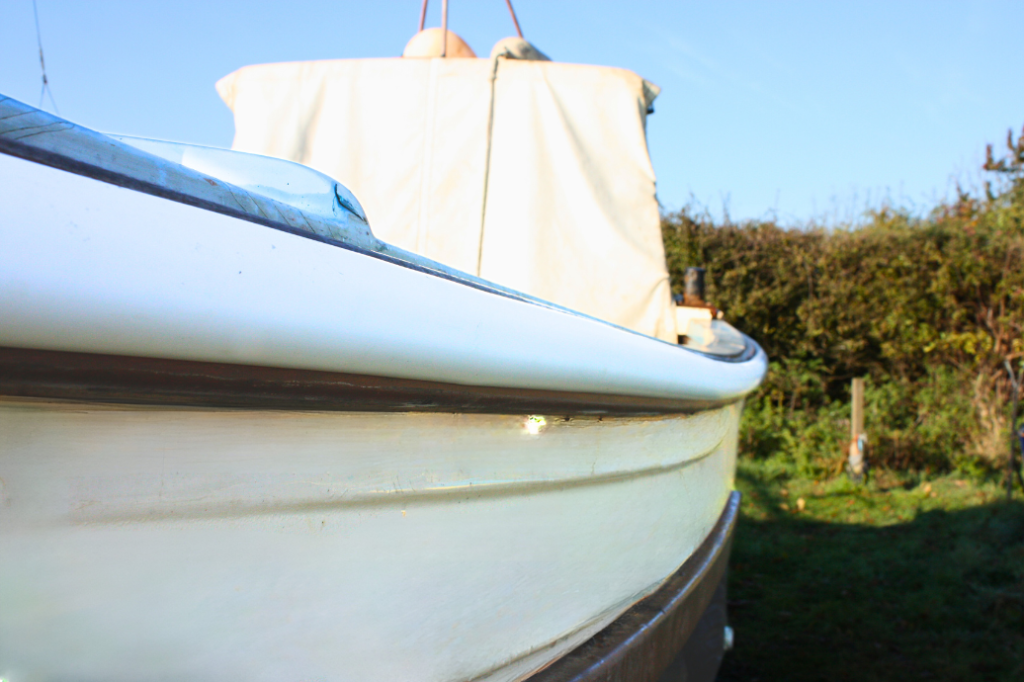Latest News
How to Clean and Maintain Your Boat’s Rub Rails
As we enter the colder months, boats are often out of the water for repair, refitting, and restoration. Attention may then be drawn to the fendering and rub rails but following these tips, your fendering won’t be on your list of big jobs to do for your boat.

Why is regular cleaning essential?
Regular cleaning helps to keep Wilks fendering and rub rails in good condition by preventing the build-up of salt, dirt and grime. If these are left for too long, they can harden and become more difficult to remove. A little maintenance carried out often is far more effective than leaving it until a heavy clean is required.
How do I carry out preventative maintenance on Wilks fendering?
Preventative maintenance is about small, regular actions that stop problems before they arise. Rinse the fendering frequently with fresh water to wash away salt and dirt. Carry out occasional gentle cleaning with a soft cloth or nylon brush and mild, pH-neutral soap. Check the fixings and edges at the same time to make sure nothing has come loose, and remove any debris caught in joints or gaps.
How do I look after my Wilks fendering and rub rails?
Wilks fendering is designed to be low maintenance and long lasting, so care does not need to be complicated. Fresh water and a gentle soap are usually all that is required. Little and often rinsing is the best method, as it prevents salt deposits and grime from setting hard, saving time and effort compared to an occasional deep clean.
What tools do I need to clean Wilks fendering and rub rails?
For light cleaning, a soft cloth or sponge is all you need. For more stubborn marks, a nylon brush is effective, but take care not to scrub near adhesives or sealants. Avoid using abrasive tools such as scouring pads, wire brushes or anything else that may scratch the surface or damage the finish.
What chemicals should I use when maintaining Wilks fendering?
The key is to keep it simple. Use only mild, pH-neutral soap with water. Avoid harsh cleaners or solvents, as these can damage the surface or weaken the material. If fuel or oil comes into contact with the fendering, rinse it away promptly with clean water.
Please avoid using damaging chemicals or solvents, including:
- Strong alkalis such as ammonia, bleach or chlorine
- Strong acids such as sulphuric acid, hydrochloric acid or phosphoric acid
- Natural solvents such as lemon or pine-based cleaners
- Household detergents or other natural cleaners
- Two-component cleaners or brighteners
- Oil or grease
What are the common cleaning mistakes to avoid?
The most common mistakes include using harsh chemicals, abrasive tools or leaving cleaning for too long. Avoid using bleach, acetone or other solvents, as well as rough scouring pads that can scratch the surface. Another mistake is neglecting regular rinsing, which allows salt and dirt to accumulate. By keeping the process gentle and consistent, you will protect the material and extend its life.
Access more helpful resources here.
ABOUT FLEXITEEK INTERNATIONAL
Flexiteek has been creating beautifully engineered synthetic decking and marine products since 2000.
Our first-generation product set the standard in synthetic decking and our revolutionary second-generation product that launched in 2014, provided many enhanced benefits.
Part of the Flexiteek Group, Wilks marine fendering products have been produced in the UK for over 50 years. Wilks have a wide range of fendering options available and renowned customer service from the UK based sales team.
For more information about our products, visit:
Flexiteek – https://www.flexiteek.com
Wilks – https://www.wilks.co.uk